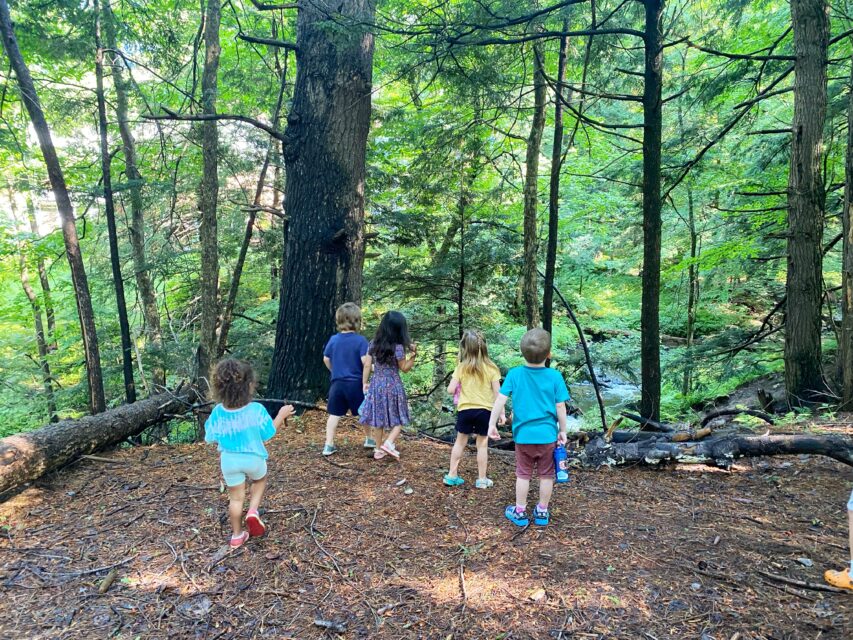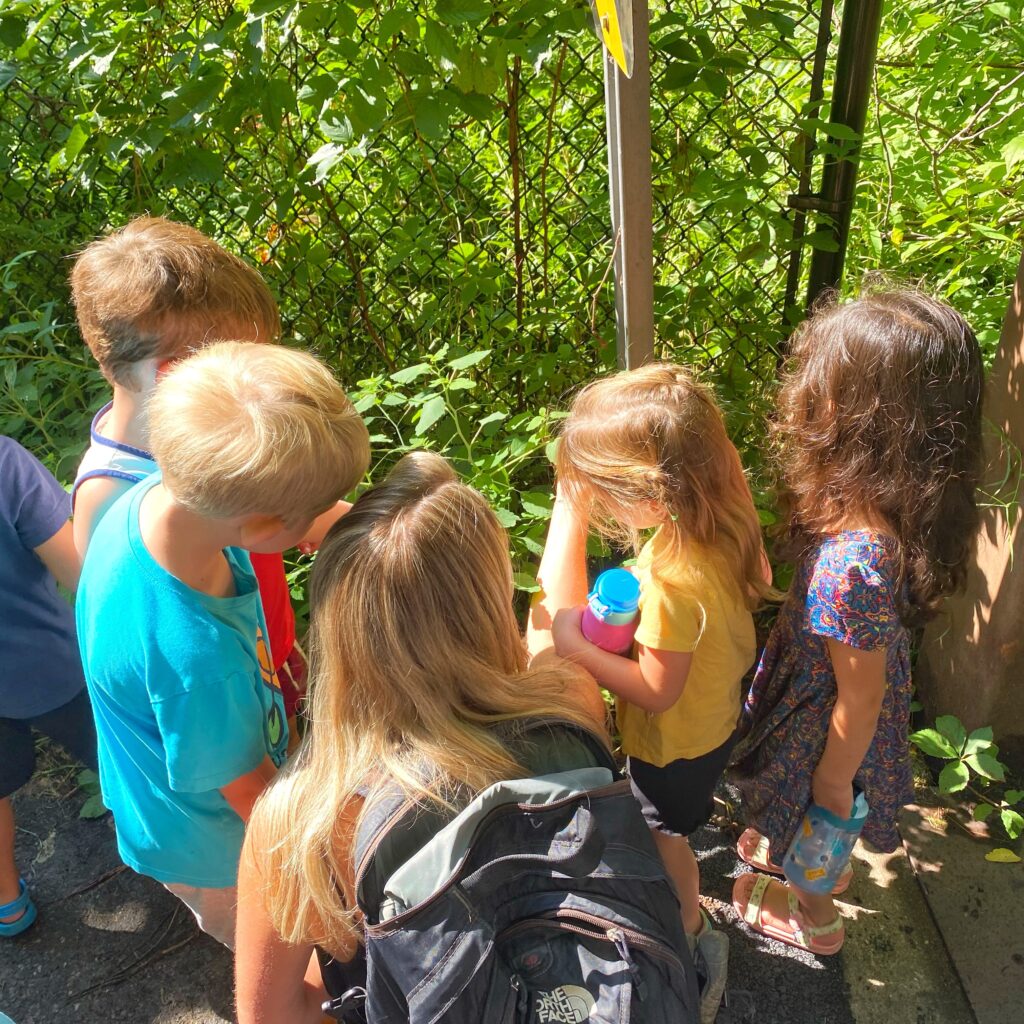
Children learn by playing; it’s one of the best parts of being a kid. Lund’s Early Childhood Education Program (LECP) uses a play-based curriculum, allowing children the opportunity for social/emotional, physical, and cognitive development. Children get outside every day to explore the beauty and science of nature. Not only does the change of environment stimulate the thinking and reasoning process of the child, but it also gives the child the opportunity to run, jump, hop, skip, and explore the world around them. Research shows that when children have access to green environments, they have improved confidence, social interactions, cognitive development, academic achievement, and emotional well-being1.
Each week, our pre-k classroom looks forward to their Forest Friday excursion. A short walk down the bike path takes them to a wooded area with a creek. Past adventures have included finding mushrooms, spotting (and naming) toads, and observing life in the stream. The teachers point out different plants and animals but also allow time for unstructured exploring.
“Our time spent in nature is so valuable. These outdoor experiences are incredibly therapeutic and give our students the opportunity to practice gentility, empathy, and respect toward all living things. These skills are key for their social and emotional development and will impact our students for the rest of their lives,” says Rosalyn, one of our pre-k teachers. “This is especially important for those who have experienced trauma; for example, some of these kids have witnessed extreme violence and/or been the target of it themselves, yet here they are protecting something as vulnerable as a tiny bug. Engaging in the outdoors lets them connect with themselves, their surroundings, and each other, and is a huge contrast to the toxic stress they may be dealing with in other parts of their lives.”
Research indicates that spending time in nature can help address the therapeutic and protective needs of children under stress, displaying emotional/behavioral responses, or coping with adverse childhood experiences2. As preschoolers delight in nature, they are also able to experience moments of calm.
At Lund, we create safe environments where kids can be kids! They play, engage, learn, grow, dream, and discover. This is just one way we help strengthen families so that children can thrive!
Sources:
- McCormick, R., (2017). Does access to green space impact the mental well-being of children: A systematic review. Journal of Pediatric Nursing, 37, 3-7. DOI.
- Bibliography: Nature Engagement during the Early Childhood Years Nature and The Mental Wellbeing of Children


